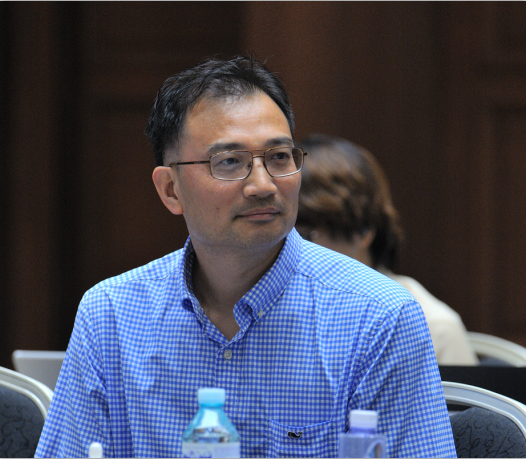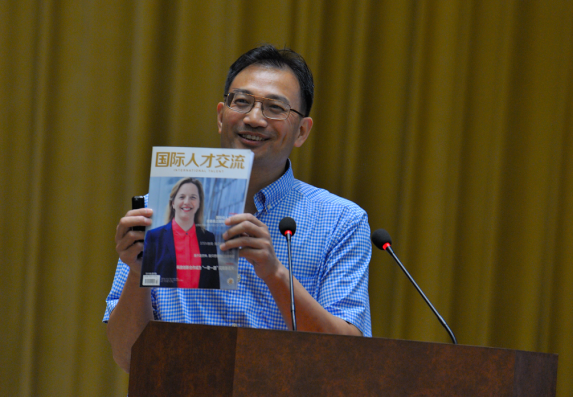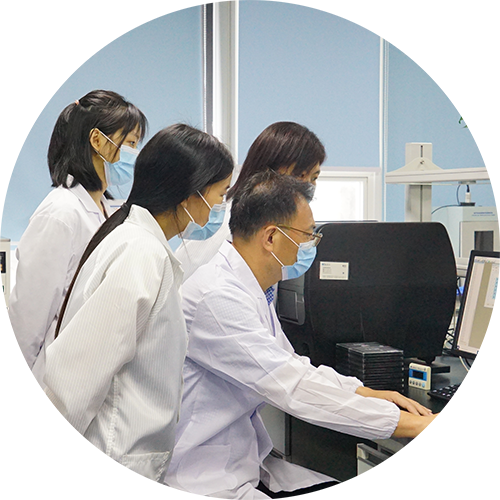News
Dr. Yihan Wang attended the symposium on Research and Formulation of National Medium- and Long-term Science and Technology Development Plan
2020-03-18 Views:
On July 12, 2019, the Ministry of Science and Technology held a symposium of foreign experts on the Research and Formulation of National Medium- and Long-term Science and Technology Development Plan at the Beijing Friendship Hotel. The symposium was attended by leaders from the Ministry of Science and Technology including Meng Li, Vice Minister, Jing Xu, Director of the Strategic Planning Department of the Ministry of Science and Technology, Haoqing Xu, Deputy Director of the Department of Foreign Expert Services, Xiang Gao, Deputy Director of the Department of Foreign Talents Introduction and Management, Haiyang Wang, Deputy Director of the Foreign Talent Research Center, and comrades from the Development and Reform Commission, the Ministry of Finance, the State-owned Assets Supervision and Administration Commission, and the Ministry of Science and Technology including its International Cooperation Department, National Office of Science and Technology Awards, Institute of Scientific and Technical Information of China, Chinese Academy of Science and Technology for Development, International Talent Exchange Center, and China International Talent Exchange Foundation and other relevant units.
This symposium specially invites 14 foreign experts in the current national key research and development fields to provide suggestions and opinions on the opportunities and challenges in China's scientific and technological innovation and development in the next 15 years (2021-2035). Dr. Yihan Wang, the founder and chairman of Shenzhen TargetRx Inc., was invited to attend this symposium.

Picture source: Tianyong Ni, photographer, State Administration of Foreign Experts Affairs
The formulation of a mid- and long-term science and technology development plan is a basic means for China to strengthen its overall and strategic deployment of science and technology innovation in response to long-term needs. At present, China’s economy is developing rapidly and people’s living standards have been greatly improved. The quality of life and disease prevention have become the current government and people’s urgent concern. The biopharmaceutical industry has become one of the key planning areas in the current development of China. In recent years, the number of biopharmaceutical companies has been increasing, the scale of the industry has expanded, and the industry has developed rapidly.
Dr. Yihan Wang founded TargetRx Inc. in 2014. TargetRx focuses on the development of innovative small molecule targeted anti-cancer drugs with independent intellectual property rights, which are in urgent need in the clinic practice. TargetRx is currently developing two drugs with the fastest progress: the fourth-generation Bcr-Abl inhibitor TGRX-678, which is for functional cure of chronic myelogenous leukemia, and the next-generation inhibitor TGRX-326 for the treatment of ALK-positive non-small cell lung cancer. These two new drugs are in the clinical application stage and are expected to enter phase I clinical trials in 2020.
Dr. Wang worked for Ariad, a leading company in biopharmaceutical research in the United States, for 16 years. He has extensive experience in the biopharmaceutical industry. The third-generation drug ponatinib developed under his lead solves the drug resistance problem of Gleevec, which is the first-generation targeted drug known as the “silver bullet” against cancer.

Picture source: Tianyong Ni, photographer, State Administration of Foreign Experts Affairs
At the symposium, Dr. Wang listed the achievements and efforts made by the state, provincial and municipal governments and institutions in the development of the biopharmaceutical industry in recent years. On March 13, 2018, the Institutional Reform Plan of the State Council was announced. The original CFDA was integrated into the State Administration for Market Regulation (SAMR), and the National Medical Products Administration (managed by the SAMR) was established to effectively improve market access and drug supervision efficiency; on October 10, 2018, the Chinese government website issued the Notice of the National Healthcare Security Administration on the Inclusion of 17 Anti-cancer Drugs in the National Basic Medical Insurance, Work-Related Injury Insurance and Maternity Insurance Drug Catalog Class B, which marked the official inclusion of the 17 anti-cancer drugs in the National Basic Medical Insurance. Compared with the average retail price, the price of drugs has dropped by an average of 56.7%, which greatly reduces the burden of drugs on cancer patients. In terms of drug evaluation and approval, a total of 51 new drugs were approved for marketing in China for the first time in 2018, a number setting a record high, which reflects the results of the reform of the drug evaluation and approval system and the progress of the innovation capabilities of pharmaceutical enterprises.
Dr. Wang gave an introduction on the current number of cancer patients and medications in China. At present, the five-year survival rate of cancer patients in China is 40.5%, and compared with 69% in the United States, the gap is large. In terms of medication, targeted drugs accounted for 66% of the oncology drugs in the United States in 2018, which is the main drug used in the market. However, at the same period in the Chinese market, targeted drugs accounted for only 27%. Compared with the world level, China's targeted drug market and the entire medical and health industry have a huge room for growth.
After that, Dr. Yihan Wang made a comparative analysis of the gap between China and the United States in the pharmaceutical industry, and expressed his views and suggestions on the current development status and prospects of the biopharmaceutical industry in China from the following three aspects.
Drug evaluation and approvals between China and the United States
By comparing the new drug evaluation approvals (volume and efficiency, etc.), the number and qualifications of evaluators and inspectors, and policies and regulations for special drugs in China and the United States in recent years, he analyzed the inferior position of the National Medical Products Administration (NMPA) in drug evaluation and supervision, drug evaluation personnel, and drug management policies, and put forward some suggestions for improvement. Dr. Wang suggested increasing the number of staff in the drug evaluation center to improve the efficiency of drug evaluation; formulating medication policies for special patients (such as orphan drugs, children’s drugs, and clinically urgently needed drugs), and opening up special drug approval channels to allow patients to use life-saving drugs faster.
Innovative drugs entering medical insurance, from the perspective of China's 4+7 volume-based purchasing policy
Dr. Wang gave his opinions on the national medical insurance and 4+7 volume-based purchasing policy in terms of drug range, geographical range and policy objectives. The current purchasing policy is only applicable to generic drugs in 11 designated cities (Beijing, Tianjin, Shanghai, Chongqing, Shenyang, Dalian, Xiamen, Guangzhou, Shenzhen, Chengdu, and Xi'an), with the purpose of gradually dropping the price of drugs and improving the medication structure. Dr. Wang hopes to popularize the unified purchasing policy across the country as soon as possible, and the policy should be also applicable to innovative drugs and imported drugs. Drug pricing should be unified nationwide so that more patients can benefit fairly; a certain premium space should be given to innovative drugs, or market access benefits should be implemented for the first-in-class and first “import substitute” drugs; the purpose of this suggestion is to encourage companies to carry out R&D and innovation and promote the development of original innovative drugs in China.
Biopharmaceutical Policy in Guangdong-Hong Kong-Macao Greater Bay Area
Dr. Wang gave a brief introduction to the current development of the biopharmaceutical industry in the Guangdong-Hong Kong-Macao Greater Bay Area and analyzed the regional development of biopharmaceuticals. In 2017, the various regions of the Greater Bay Area (Guangzhou, Shenzhen, Zhuhai, Hong Kong, and Macau) developed strongly, highlighting the important status of the Guangdong-Hong Kong-Macao Greater Bay Area in the development of the national biopharmaceutical industry. As for the policy formulation in the biopharmaceutical industry, Dr. Wang compared the differences in key areas, the introduction of pharmaceutical talents, industrial support and industrial integration between Suzhou and Shenzhen, and suggested redefining high-tech enterprises, strengthening talent retention policies, finance/taxation policies, industrial policies, and integration of government guidance resources.
Summary
At the end of the symposium, Meng Li, Vice Minister of the Ministry of Science and Technology, expressed his gratitude to the foreign experts and their suggestions on behalf of the Ministry of Science and Technology and its Minister Zhigang Wang in his concluding speech. Vice Minister Li said that China’s scientific and technological development and progress require opinions from all parties to share and exchange experiences. Vice Minister Li welcomes foreign experts to come to China for exchanges and cooperation, innovation and entrepreneurship. He also hopes that foreign experts will continue to offer advice and suggestions to promote the common development of China and the world.
Prev: Character丨 Yihan Wang: "I am not a god of medicine, I just want to give them hope"
Next: Shenzhen International Biotech Conference 2019 – Seeking Cure: The Next-Gen Targeted Therapy







 Tel: +86-0755-86934300
Tel: +86-0755-86934300 3rd Floor, Building A1, Kexing Science Park, No. 15 Keyuan Rd., Nanshan District, Shenzhen, China
3rd Floor, Building A1, Kexing Science Park, No. 15 Keyuan Rd., Nanshan District, Shenzhen, China E-mail:
E-mail: 